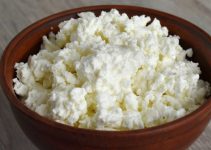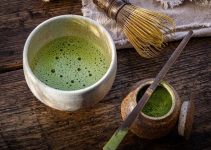Elderberry is a widely used medicinal plant.
It is known that indigenous peoples used it to treat rheumatism and fever. In addition, the ancient Egyptians used it to treat complexions and heal bones.
Today, elderberry is used as a supplement to treat flu-related symptoms.
However, it is essential to note that raw berries, leaves, and bark can be poisonous and lead to stomach aches.
In this article, we will talk about the scientific evidence regarding elderberry benefits, and the potential side effects that its intake can cause to the body.
What is elderberry?

Elderberry is the fruit of the Sambucus tree, a tree that is native to Europe but has been planted in many other parts of the world.
The most common type, known as Sambucus nigra, can grow over 30 feet tall and has small white flowers. The fruits come in small black or blue clusters.
Berries must be cooked to be eaten. The flowers, meanwhile, can be eaten raw or cooked.
In ancient times, flowers and leaves were used to relieve inflammation and pain. The bark was used as diuretics and laxatives.
In folk medicine, dried berries and juice are used to treat dental pain, infections, headaches, and others.
Top Health Benefits of Elderberry
In addition to being very nutritious, elderberries have many medicinal benefits that are detailed below.
1. High in nutrients
One cup of fresh berries contains 26.7 grams of carbohydrates, 106 calories, and less than one gram of protein and fat.
Other benefits are:
- High in dietary fiber: a cup contains 10 grams (36% of the daily value).
- Source of flavonols: berries and flowers contain antioxidants beneficial to health.
- High in vitamin C: a cup of this fruit contains 52 mg of vitamin C (57% of the daily value).
- Source of phenolic acids: help prevent the aging of cells because they are powerful antioxidants.
- High in anthocyanins: reduce inflammation and act as antioxidants.
2. May improve cold and flu symptoms
According to a 2004 study of 60 people with influenza, researchers found that those who took 15 ml of elderberry syrup four times a day reduced symptoms in 2-4 days. In contrast, those who did not take that syrup continued with symptoms for 7 or 8 days.
Another study, conducted on 312 air travelers, showed that those who took 300 mg of elderberry extract three times a day had less sick feeling and less severe symptoms.
Although various studies have been carried out, most of them have taken into account commercial elderberry products. In this way, there are still no reliable studies that guarantee the effectiveness of home remedies based on elderberry.
3. High in antioxidants
Oxidative stress is dangerous because it can lead to diseases such as cancer or type 2 diabetes.
In this way, foods rich in antioxidants are beneficial for preventing chronic diseases.
It is noteworthy that elderberries are an excellent source of antioxidants. One of the anthocyanins found in these berries has an antioxidant power that is 3.5 times more powerful than vitamin E.
However, the beneficial effect of elderberry is more negligible if it is consumed in syrups, juices, and jams.
4. May be suitable for heart health
Studies have shown that elderberry juice lowers cholesterol and helps reduce the risk of heart disease due to its high flavonoid content.
However, a study conducted on 34 people showed that consuming 400 ml of elderberry extract twice a day for two weeks does not cause a significant effect on cholesterol levels.
Beyond that, a study carried out in rodents with high cholesterol levels showed that the consumption of elderberry reduces the amount of cholesterol in the kidney but not in the blood.
On the other hand, elderberries reduce uric acid levels in the blood and help improve blood sugar levels. A study on rats with diabetes showed that elderberries helped improve blood sugar control.
Other Health Benefits of Elderberry
Another benefit of elderberry, although with less scientific evidence, are:
- Strengthening the immune system
Elderberry Side Effects
Lectins are substances present in the rinds and seeds of berries that can cause stomach aches if consumed in large quantities.
In addition, this berry contains some substances that can release cyanide on certain occasions.
However, commercial preparations and cooked berries do not have excessive cyanide, so they are safe to eat.
But eating elderberry without cooking can lead to diarrhea, vomiting, and nausea.
According to one report, eight people fell ill after drinking the juice from the freshly gathered berries. The symptoms were nausea, dizziness, weakness, and vomiting.
Finally, the consumption of elderberries is not recommended in pregnant women. Although there is no evidence to show that it harms them, there is not much information to confirm that its consumption is safe.





